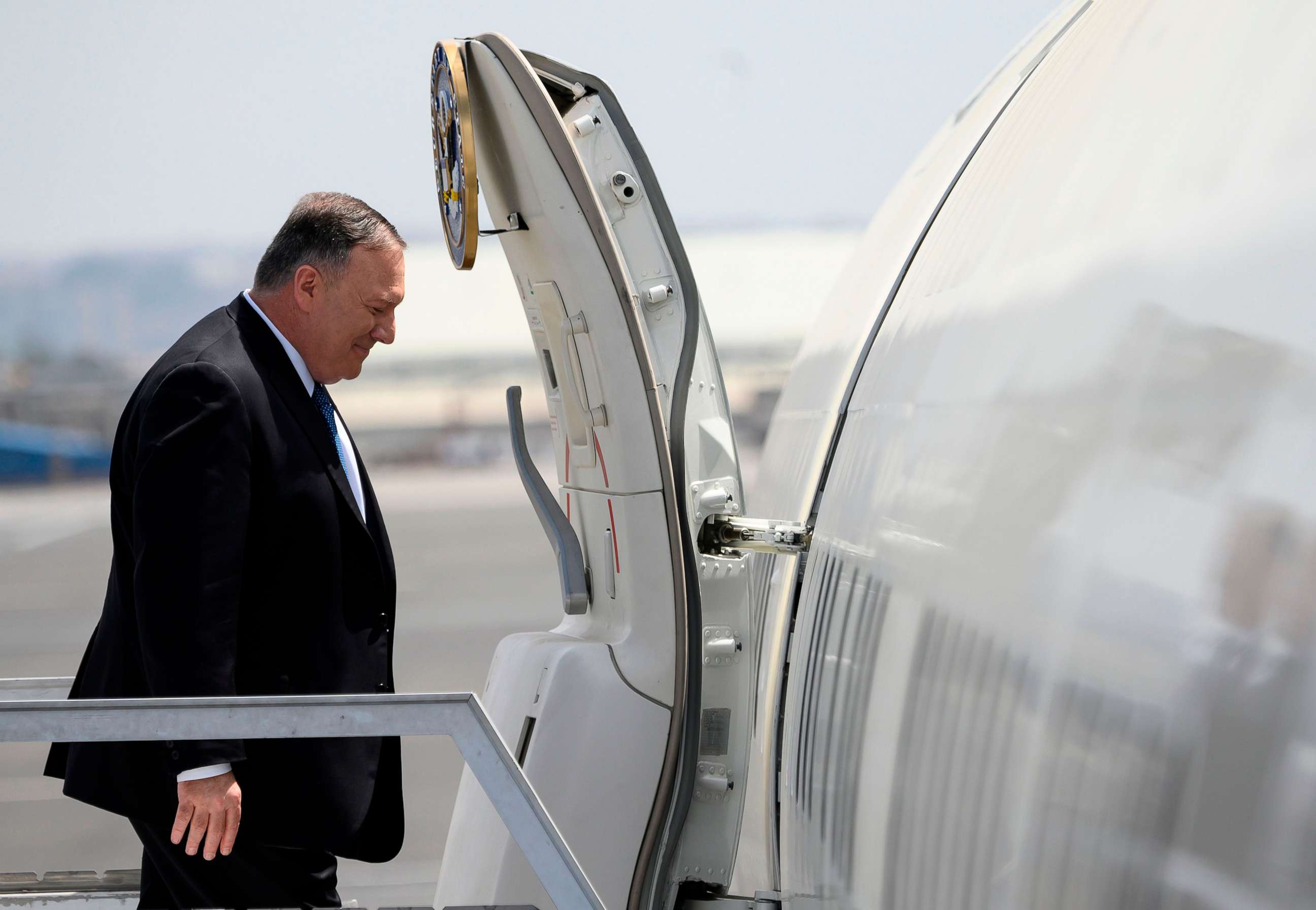
The deal is also supposed to lead to Afghan negotiations with the Taliban.
February 29, 2020, 3:55 PMU.S. Army Staff Sgt. Jason N. Bobo helps secure a helicopter landing zone as a CH-47 Chinook helicopter prepares to land Southeastern Afghanistan, Dec. 29, 2019.
Alejandro Licea/U.S. ArmyAfter a week-long deal to reduce violence across Afghanistan, the U.S. and the Taliban signed a historic agreement Saturday that would see U.S. troops start to withdraw, according to a statement issued Friday afternoon by President Donald Trump.
"Soon, at my direction, Secretary of State Mike Pompeo will witness the signing of an agreement with representatives of the Taliban, while Secretary of Defense Mark Esper will issue a joint declaration with the government of Afghanistan. If the Taliban and the government of Afghanistan live up to these commitments, we will have a powerful path forward to end the war in Afghanistan and bring our troops home," Trump said.
Pompeo is in Doha, Qatar, where the U.S. and the militant group have engaged in talks for more than a year and a half and is where the signing ceremony took place. At the same time, Esper issued a joint statement to reaffirm U.S. support for the Afghan government, long rejected by the Taliban and sidelined from their talks with U.S. negotiators.
The agreement with the militant group that harbored the al Qaeda operatives responsible for the Sept. 11 attacks comes after over 18 years of war. The Trump administration hopes it is poised to reshape Afghanistan, leading to national peace negotiations and ending any Taliban safe haven for terrorists that threaten the U.S. homeland. But critics warn the Taliban has neither the ability nor perhaps the appetite to carry out their commitments.

According to Pompeo, the agreement triggers a "conditions-based and phased" U.S. withdrawal and the "commencement" of Afghan negotiations where "all sides of the conflict will sit down together and begin the hard work of reconciliation." U.S. officials say the deal also includes Taliban commitments on counterterrorism, although those details are still unclear.
"These commitments represent an important step to a lasting peace in a new Afghanistan, free from Al Qaeda, ISIS, and any other terrorist group that would seek to bring us harm," Trump said in his statement. "Ultimately, it will be up to the people of Afghanistan to work out their future. We, therefore, urge the Afghan people to seize this opportunity for peace and a new future for their country."
At a White House briefing Saturday, Trump said troops will be returning from Afghanistan "today."
"Today, they'll start immediately," Trump said.
However, the president did note that if "bad things happen" that U.S. troops will go back to Afghanistan "with a force like nobody's ever seen."
"I really believe the Taliban wants to do something to show that we're not all wasting time," Trump said. "But if bad things happen, we'll go back to people know we'll go back and we'll go back so fast and we'll go back with a force, like nobody's ever seen."
Initially, the U.S. will draw down its troops from 13,000 to 8,600 -- a level that Gen. Scott Miller, the commander of U.S. and NATO forces, has said is still sufficient to carry out their mission. While that draw down is expected to take months, conditions and timelines for further reductions after that are unclear.
The signing ceremony, where chief U.S. negotiator Zalmay Khalilzad is expected to sign with a senior Taliban official, comes after the country saw a nationwide reduction in violence -- a key demand from the Trump administration before it moved ahead with the deal, six months after Trump called off talks, citing the death of a U.S. soldier in a Taliban attack.
U.S. officials said that the week-long period would be key to seeing whether the Taliban had the commitment and control to reduce violence in the country, and Pompeo reported Tuesday that the deal held, with a significant reduction in major attacks. Two explosions in Kabul during the week were quickly denied by the Taliban, with at least one claimed by ISIS's affiliate in the region.
Still, there are doubts about the Taliban's commitment to countering terrorism, when the group itself conducts terror attacks and maintains ties with al Qaeda, or to Afghan national peace negotiations because it still does not recognize the government of Afghanistan, which it sees as a U.S. puppet.
But a senior administration official said there are verification mechanisms in the deal to ensure those counterterrorism commitments are kept, and as part of the agreement, ten days after signing, the militant group has agreed to sit down with an inclusive delegation of Afghans that includes representatives of the government, although in a private capacity.